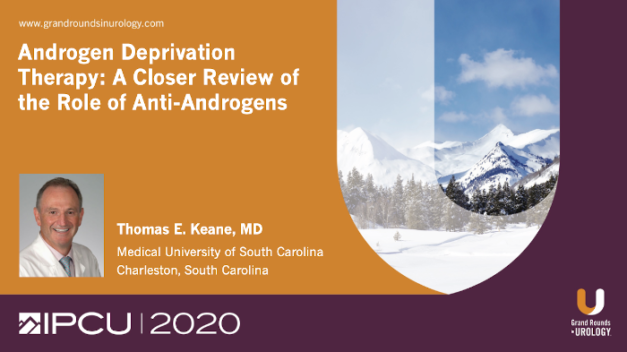Experience with Radical Perineal Prostatectomy at a Single Institution in the Era of Robotic-Assisted Laparoscopic Prostatectomy
Thomas E. Keane, MD, presents data on the use and outcomes of Radical Perineal Prostatectomy (RPP) as a treatment for prostate cancer. He begins by reviewing the many options available to patients, allowing their treatment to be customized by their disease, priorities, and functional status. He then focuses on the viability of RPP as a treatment option for a wider population, especially for those who do not qualify for robotic-assisted surgery.
In this presentation, Dr. Keane illustrates:
The equipment necessary to perform RPP
The steps of the surgery, with photographs at each stage
The objectives of the surgery
The results from patients who received RPP over the past ten years
Dr. Keane concludes by comparing the outcomes of patients treated with Robotic-Assisted Laparoscopic Prostatectomy (RALP) to those of RPP patients. After ten years, patients treated with RPP showed no difference in progression to metastatic disease, no difference in rates of urinary symptoms, and higher rates of continence when compared to those treated with RALP.
Read More



